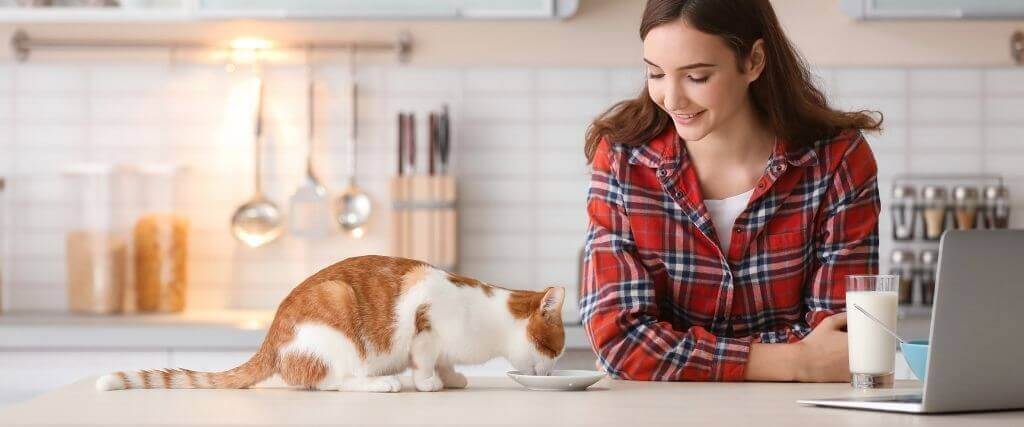When we think of the ideal meal, our minds gravitate to home-cooked meals simmering on the stove, loaded with flavor and fresh ingredients. They not only taste better than processed or frozen meals, but the nutritional value is unmatched. So it’s only natural that cat owners might want the same for their felines, pampering them with meals they’ve created with ingredients they trust. However, making your cat’s food does come with some warnings, especially if you’re considering the raw route. To be honest, most veterinarians would likely tell you that making your own cat food is not the best idea, as it’s nearly impossible to get your feline companions the nutrients they need. That’s why the best pet food companies have veterinary nutritionists on staff. However, we know that some people like to explore this avenue, so we decided to share the dos and don’ts!
Benefits of Making Cat Food
Making your cat’s food does come with some health benefits, and perhaps that’s why you’ve gravitated to this option over canned or dry food.
Health benefits of homemade cat food include:
- Complete control over ingredients
- Food free of artificial colors and flavors
- No preservatives
- Control dietary sensitivities
- Avoid food allergies or intolerances
Making your own cat food might also be an option if you have a finicky cat who turns their nose up at every other choice you’ve presented. It might take a few attempts with various ingredients, but homemade cat food might mean the end of the quest to find a food your picky eater will enjoy. Again, however, we want to reiterate that cat food purchased at the store or from your veterinarian is the best way to go to ensure proper nutrients, so never hesitate to ask your own doctor for recommendations.
Ensuring Your Homemade Cat Food is Healthy Enough
The most significant consideration for making your own cat food is ensuring adequate nutrition for your cat. Homemade food isn’t necessarily healthier than commercial food since the latter is carefully crafted with your cat’s long-term health in mind, so it’s essential that you at least match the nutritional value of over-the-counter options.
Follow these veterinarian-approved guidelines for making your own cat food:
- Ensure nutritional balance – An excess or deficiency of nutrients can lead to serious health problems
- Use vet-approved recipes only – Look for recipes created by board-certified veterinary nutritionists if you opt for homemade cat food, which you can find through the American College of Veterinary Nutrition
- Follow the recipes with 100% accuracy – You’ve found great recipes, but don’t substitute any ingredients or add ingredients specifically for taste
- Ensure it contains the right supplements – A complete and balanced recipe should include vitamin and mineral supplements; if the recipe doesn’t call for them, look elsewhere
Avoid Raw Homemade Cat Food
A raw homemade cat food diet comes with an extra layer of concern since Salmonella and Campylobacter bacteria contamination becomes a factor. While young, healthy cats may be able to battle a foodborne disease with relative ease, that’s not the case for older cats or cats with medical conditions. In addition, some raw food diets call for whole raw bones. While raw bones are always the safer option over cooked bones that easily splinter, chewing any type of bone increases a cat’s risk of broken teeth and serious gastrointestinal issues. Review the AVMA’s recommendations for raw food diets before proceeding.
If you decide to go the route of making your cat’s food, make sure you have the time to dedicate to the process. Your cat will need a gradual shift from commercial food to homemade food to avoid an upset stomach, and if you find that the cooking process is too time-consuming, you’ll need to wean them back onto commercial food again.
Contact us if you would like to learn more about making your cat’s food or confirm you’ve sourced appropriate recipes and provided your cat with adequate nutrition.

